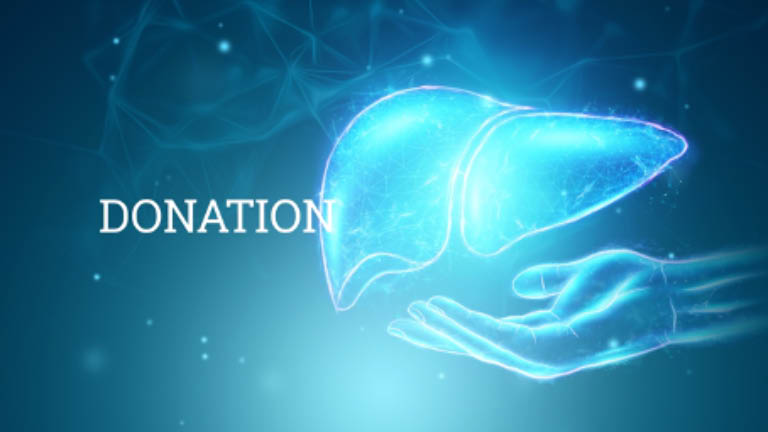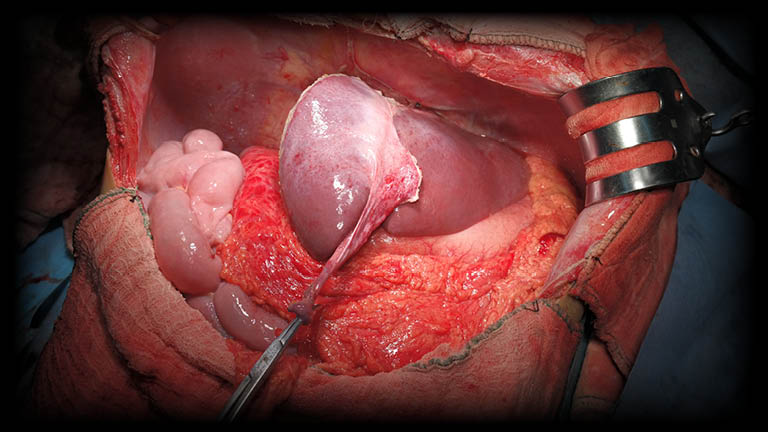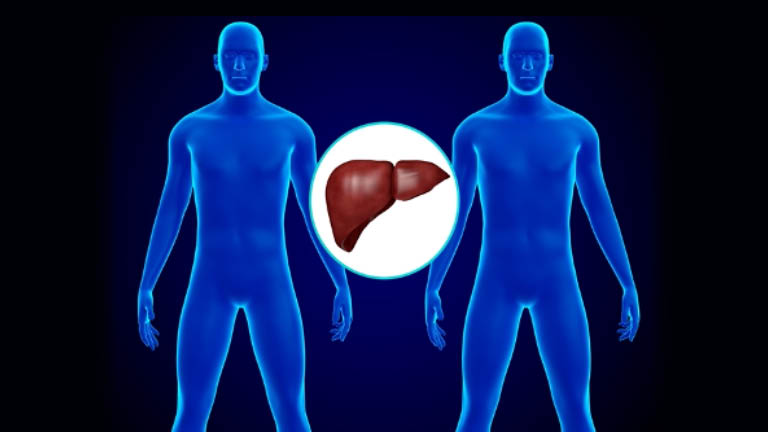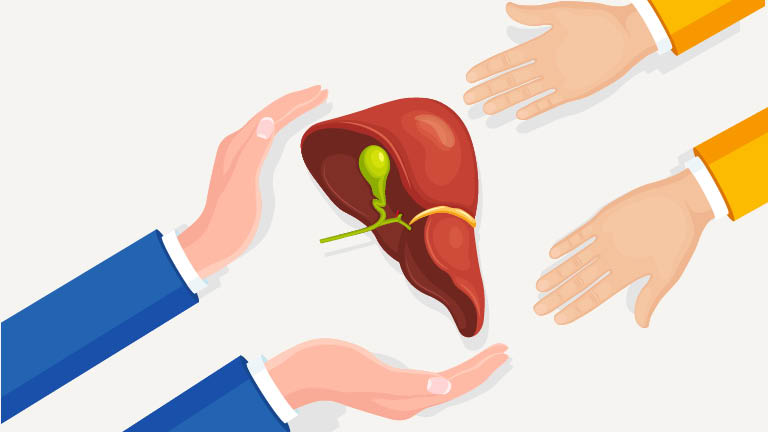Transplantation
What is Liver Transplantation?

Liver transplantation is to replace irreversibly damaged patient liver; with a donated healthy liver. Body weight and blood type should be compatible between the donor and patient. Annually, more than 1000 liver transplantation procedures; including cadaveric and living donor liver transplantations are done in Turkey..
When Is A Liver Transplantation Done?
Son donem karaciğer yetmezliği, karaciğer hastaliginin yasami tehdit eden sistemik komplikasyonları, karında aşırı sıvı birikmesi, hepatoseluler kanser, sirozu olan hastalar karaciğer nakli için düşünülmelidir. Normalde karaciğer nakline karar verdikten sonra çok beklemeden hastaların genel durumu ideale en yakın zamanda iken nakilin yapılması operasyonun basari şansını arttırdığı gibi hastanın yasam suresini de uzatır.
Liver transplantation is performed between the donor and the patient with suitable blood types from a living donor or cadaver. In cases that require urgency, liver transplantation can also be performed among people whose blood groups do not match.
In Which Situations Liver Transplant Is Done?
The liver is the largest organ of our body. It provides the production of most of the proteins necessary for the body, the storage of energy obtained by the digestion of food, the production of bile and the absorption of fat-soluble vitamins A, D, E, K, ensuring blood coagulation. And detoxifying most of the toxic substances produced in the body. When it becomes too incompetent to fulfill these functions, it becomes life-threatening and liver transplantation is the only treatment option. Liver transplantation is also done in some types of cancer in suitable patients.
Karaciğer Donörü Nedir?

For a person who decides to become a liver donor, it is checked whether he is a suitable donor after detailed evaluations beforehand. Organ donation is not accepted if there is any risk or suspicion for the recipient or donor. In order for a person to be a liver donor, they must have the following characteristics.
- The donor must be over the age of 18.
- The donor must be younger than 60 years of age, depending on the general health status of the donor and recipient.
- The donor must make their own donation on a voluntary basis.
- The donor must make their own donation on a voluntary basis. There must be up to 4th degree blood ties between the donor candidate and the recipient. Currently, ethics committee approval is not required for blood ties up to the 4th degree in our country, whereas ethics committee approval is required for relatives after the 4th degree or for donor candidates who do not have blood ties. .
- Donor and recipient blood groups must be compatible (0 blood group can be a donor to anyone)
- The donor should not have a history of systemic disease
- It is preferred that the body mass index is not over 30..
What Is Swap Liver Transplantation
Canlı vericili karaciğer naklinde donör yaşı 18’in üzerinde olmalıdır. Donör seçimi; akli dengesi yerinde, herhangi bir sağlık sorunu olmayan kişilerden olmalıdır. Verici adayına organ nakli ekibi tarafından muayene ve laboratuvar testleri yapılır. Herhangi bir uygunsuzluk çıkarsa nakil yapılmaz. Karaciğerin geriye kalan kısmı donörün hayatını tehlikeye sokmayacak şekilde yeterli olmalıdır. Geriye kalan karaciğer 3 aylık periyot içinde yaklaşık olarak eski büyüklüğüne ulaşır. Bu donemde kendinizi yorgun hissetmeniz son derecede doğaldır. Bu nedenle donörlerin özellikle ağır iş sahalarında, fiziksel aktiviteye dayanan işlerine en erken 5-6 ay içinde dönmeleri uygun olur. Bu hem vücut yorgunluğu ile ilişkili hem de aynı zamanda ameliyat yerinde oluşabilecek fıtıklardan korunmak amacıyla mutlak gereklidir. Bunun dışında günlük faaliyetlerinizi 2-3 haftanın sonunda rahatlıkla kendiniz yapabilirsiniz.
Liver Transplantation Is The Only Treatment Option For Chronic Liver Failure
All over the world cirrhosis is the most common cause of liver transplantation. The only treatment option for end-stage liver failure is liver transplantation. Liver transplantation can be done form the cadaveric donor or from living donors as well.
What Is Swap Liver Transplantation?

Swap transplantation is a method to match the medically incompatible donor and recipient couples with the couples having the same problems.
In Swap Liver Transplantation, recipient and donor operations start at the same time and run parallel to each other. After all blood tests of the couples applying for Swap Liver Transplantation are done, liver weights and liver anatomy are examined. As a result of all examinations, if the couples are found to be suitable for each other, surgery is performed.
Important Criteria In Liver Transplant
For liver transplantation, first of all, the blood type of the patient and the donor must be suitable. Afterwards, the examination of the donor candidate begins. This process; It consists of social, psychological and medical evaluations. Medical evaluation; blood and urine tests, investigation of infectious diseases, radiological examinations and taking the opinions of other medical units (cardiology, chest diseases, etc.). Many factors such as the amount of liver needed by the patient, the general health of the donor candidate, and the appropriate anatomy of the liver (volume, vascular and biliary tract anatomy) play a role in the planning of the surgery between the patient and the donor candidate..
One Donor Could Save Eight Lives

Türkiye’de organ bağışı ve nakil sayılarının yetersizliği organ yetmezliği nedeniyle tedavi görmekte olan birçok hastanın organ beklerken hayatını kaybetmesine neden olmaktadır. Bireylerin beyin ölümünün gerçekleşmesi halinde ailelerin onay vermemesi nedeniyle umutsuzca organ nakli sırasında bekleyen pek çok hasta hayatını kaybediyor. Oysa ki, bir insan organlarını bağışlayarak 8 kişinin hayatını kurtarıp onlara yeniden can verebilir. Organ bağışı ve nakil sayılarının artırılması ile hastaların yaşam süresinde ve kalitesinde artış olacaktır.
SUPPORT ORGAN DONATION! GIVE A LIFE
- Who can be a donor in a living donor liver transplant?
- Can hepatitis B and C patients be donors?
- Can a liver donor ever be a donor again?
A portion of the healthy liver of a volunteer can be taken from the relatives or close relatives of the patient up to the fourth degree (with the approval of the ethics committee) and transferred to the sick person. After the transplant, both the liver attached to the patient and the remaining liver in the donor regenerate and grows.
Hepatitis B and C patients can be donors. They can be used if the organs of the donor evaluated by the transplant team are healthy enough to transplant.
A person who has been a donor in a living-to-living liver transplant cannot be a donor again.
Organ Transplantation Does Not Obstacle To Being A Mother!

Approximately 30% of female patients of childbearing age begin to menstruate 3 months after liver transplantation and the vast majority at the end of 1 year.
In terms of the health of the baby and the mother, it is recommended to become pregnant at the earliest 1 year after a successful liver transplantation. This period should be 2 years under ideal conditions.
Organ Nakli Sonrası Spor Yapılabilir Mi?

After the transplant, the patient can do sports.
Exercise has a positive effect on cholesterol level, blood pressure, heart and lung functions. Additionally pretransplant weakened muscles get strengthen.
